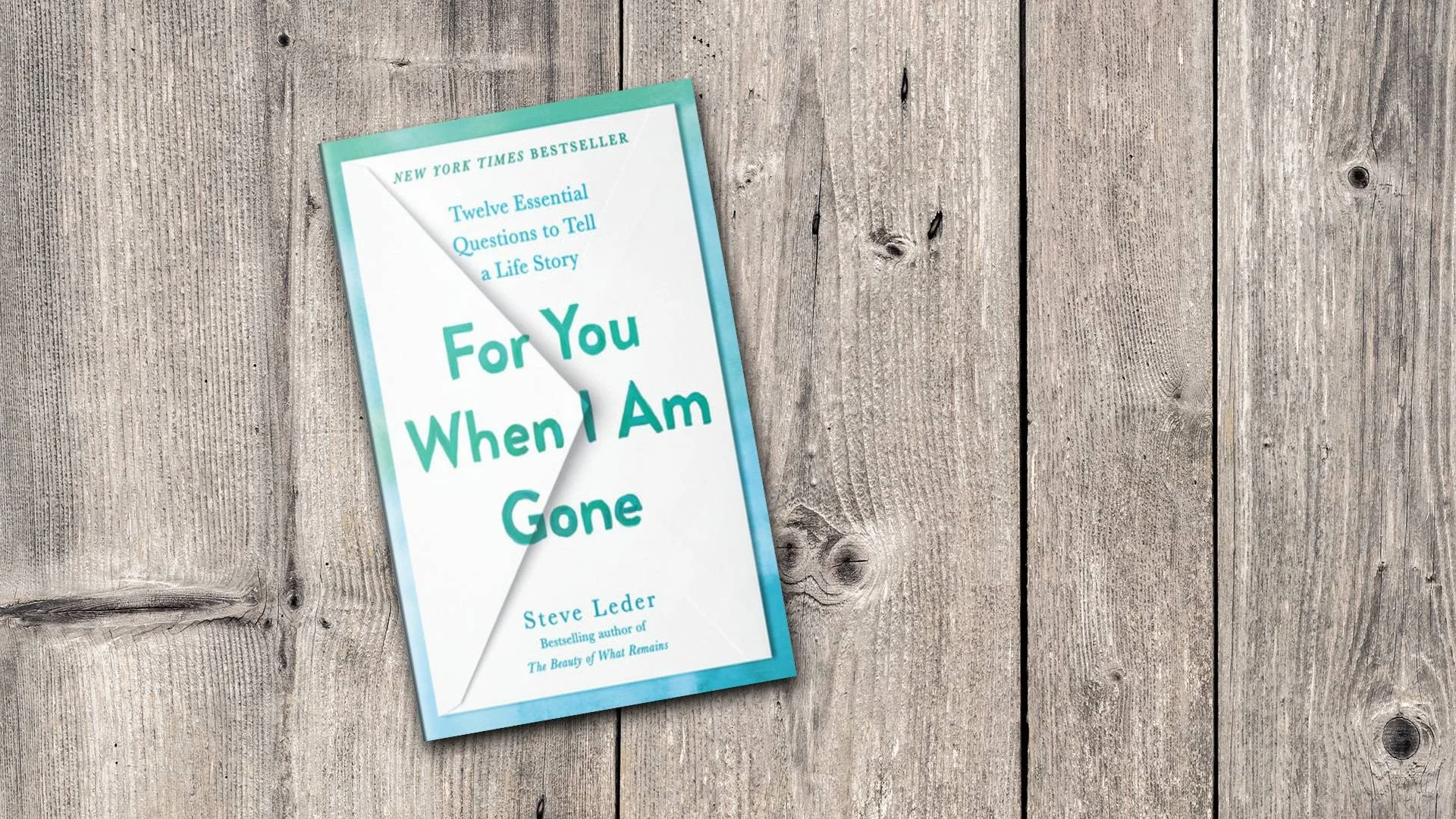Book of the Month: For You When I Am Gone by Steve Leder
It might seem like a book of the month pick from Evergreen Authors should be a book that teaches the precise art of writing, right?
That’s really not the way we see it. Our choice for this month, by Rabbi Steve Leder, is a good example of that.
To put it simply, Steve Leder is someone who counsels others about the Jewish custom of the ethical will. Essentially, it’s a document you create before you die which passes down your memories, customs, hopes, and wishes for your loved ones.
We did not read this book because we had any idea it might become a book of the month pick for us here at Evergreen Authors. We had simply heard him on a few podcasts and thought what he was saying made sense and really loved his simple, truthful, and compassionate communication style.
For You When I Am Gone: Twelve Essential Questions to Tell a Life Story
by Steve Leder
But as we were reading, we couldn’t help but notice that the things he teaches in this book, the ethical will itself, and the focus he puts on being honest about your past and how it has impacted the person you are now, are helpful practices for any creative person.
Here are three reasons why we think all creatives should read For You When I Am Gone, no matter what genre you are writing in.
1) Great writers are radically honest.
The act of creating your ethical will, or even thinking about creating your ethical will, is going to force you into some radical honesty. About yourself, your values, your hopes, your fears, your dreams.
If you’re writing memoir, this is obviously essential. But even if you are writing fiction or nonfiction, the practice of honesty still applies.
If you are writing fiction, you as the author need to create believable, multi-dimensional characters.
If you are writing nonfiction you as the author need to be vulnerable with your own journey and establish trust with the reader. Honesty starts with YOU.
2) Great writers are consistently self-aware.
Journaling isn’t for everyone, not even us as writers. However, a practice of writing– bringing your thoughts to completion – is not just important as a skill, but it’s also incredibly therapeutic.
We love that this book gives writers and alternative to traditional journaling, but creates the same opportunity for focus and discipline in the unique form of an ethical will.
3) Great writers know their audience.
The process of creating an ethical will forces you to write in an epistolary style, a style which requires an intimate connection with the reader.
We found as we read this book that even the simplest story we told in our ethical wills were more focused, honest, and vulnerable because they were written with a deep understanding of the recipient in mind.
This, we think, is the difference between a good book and a great book!
We sincerely hope you will take the time to read this book and put the practice of writing an ethical will into your creative journey in some form or another.
The best part is that if this style of writing works for you, your project will be never ending.
Maybe it will be the seeds of your memoir, maybe it will be something just for your friends and family to read, maybe you will tuck it away somewhere safe.
Interested in suggesting a book for our book of the month selection? Email us here!



